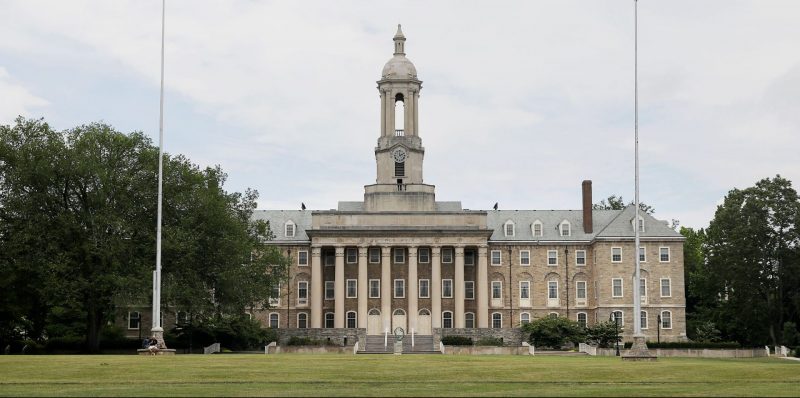Some had criticized the university for forcing students to “assume any and all risk” of contracting the virus, which they said amounted to a liability waiver.
Sara Simon/Spotlight PA
Spotlight PA is an independent, non-partisan newsroom powered by The Philadelphia Inquirer in partnership with PennLive/The Patriot-News and other news organizations across Pennsylvania. Sign up for our free weekly newsletter.
HARRISBURG — In the face of criticism from students, faculty, and legal experts, Pennsylvania State University said Thursday it will reverse course and provide an alternate legal agreement students must sign regarding the coronavirus before returning to campus.
The original agreement required students to “assume any and all risk” of COVID-19, which some said amounted to a liability waiver. Penn State, with an enrollment nearing 100,000, plans to hold half of its fall semester classes with at least some in-person instruction.
One day after Spotlight PA and the Daily Collegian published stories about the agreement — noting it was “on the more extreme end” of what other colleges and universities were requiring — Penn State said it would provide an updated option.
“[W]e have heard from some concerned with language requiring students to assume the risks of exposure to COVID-19,” the statement said. “Others have misinterpreted the language of the compact as a waiver of students’ rights, which was neither the case, nor the intent.”
Penn State students who will be on campus for the fall semester are still required to sign the compact — acknowledging that returning to campus does pose risk of exposure to COVID-19 — but there will be a second option with modified language available to students “in the coming days,” the statement said.
Previously, the compact said, “I assume any and all risk of exposure to COVID-19 that may result from attending Penn State, or participating in Penn State activities, and I acknowledge that exposure or infection may result in personal injury, illness, permanent disability, or death.”
The compact appeared before students could access the university’s online portal, which includes class registration and information about finances and health insurance.
The modified option will state, “Even with the mitigation steps taken by Penn State and my compliance with this compact, I acknowledge that Penn State cannot prevent the risks of exposure to COVID-19 that may result from attending Penn State or participating in Penn State activities.”
Penn State’s statement, published Thursday morning, said, “To reiterate: This is not a waiver and was not intended to be. It is an acknowledgement.”
The statement added that students who will be fully remote for the semester can bypass the compact and still be able to access Penn State’s online system.
Heidi Li Feldman, a professor at Georgetown University Law Center who focuses on legal liability and who had strongly urged Penn State students against signing the original compact, said the modified language “eliminates legal terms of art” meant to shield Penn State from liability.
“Equally important, if not more so, than the changed language is Penn State’s public announcement of its understanding of the compact: that it isn’t meant to limit the university’s legal obligation to take reasonable, prudent precautions to safeguard students’ health,” Feldman said.
PA Post is an independent, nonpartisan newsroom covering politics and policy in Pennsylvania. For more, go to PaPost.org.
